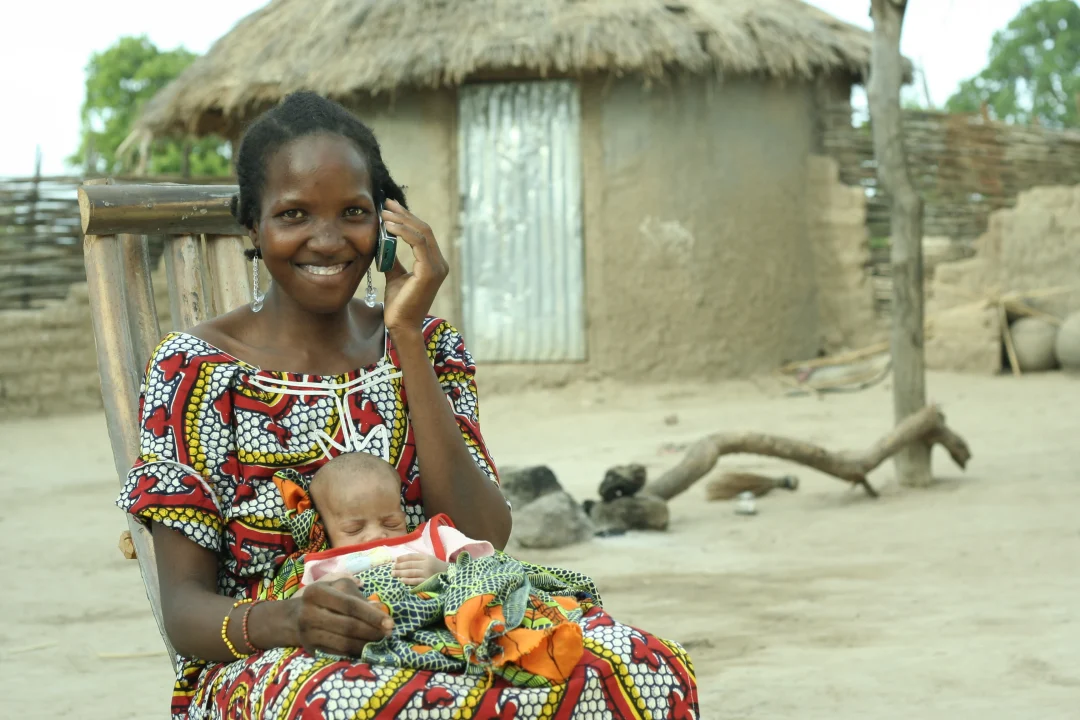A legal identity at birth, a right for every child
The World Bank, in partnership with UNICEF, aims to provide legal identity for all by 2030. This is a challenge that must be met in order to establish autonomous and sustainable governance.

A right for every child
To be registered at birth, to have a name, a date of birth and a nationality is the right of every child, as enshrined in Article 7 of the Convention on the Rights of the Child.
However, according to the latest UNICEF 73rd anniversary report, Birth Registration for Every Child by 2030, the births of nearly 166 million children have never been registered. Without a birth certificate to prove their identity, children can be denied access to their most basic rights.
Thus, birth registration is a critical parameter for the planning and implementation of development programmes and policies, particularly in the health, education, housing, water and sanitation, employment, agriculture and industry sectors.
A quarter of the world's children are without identity
Today, there are 166 million unregistered children under the age of five, according to UNICEF figures:
- South Asia and sub-Saharan Africa alone account for 145 million unregistered children under five, or 87%.
- Sub-Saharan Africa, with 94 million children, is by far the largest geographical area affected.
- South Asia is also heavily affected with 51 million children.
However, the non-registration of children at birth has a major impact on their lives. Having a legal identity recognised by the law and by the State is an indispensable prerequisite for access to fundamental rights such as
- Access to nationality to protect children from the risk of statelessness: According to the Office of the United Nations High Commissioner for Refugees (UNHCR), statistics show that the lack of registration of children at birth is a major cause of statelessness. The number of stateless people is estimated at 10 million, of whom one third are children.
- Access to education and social rights: the birth certificate represents a passport of protection for the child, a legal document proving the existence of its holder. It is only with the presentation of this document that a child will have access to education, non-emergency health services, health insurance but also to social assistance.
But also the right to vote as an adult, access to justice and the fight against child exploitation.
The main reasons for not registering births
The registration of vital events (births, deaths) and knowledge of the population must be part of a continuous and sustainable process in order to enable governments, associations, non-governmental and international organisations to produce the statistics necessary for:
- The implementation of an adapted and anticipatory social, economic and urban development plan
- The guarantee of a good democratic functioning
- The definition of a macroeconomic policy in line with the needs of the population
From a societal point of view, the analysis of the obstacles to the maintenance of a register is therefore essential. Among the causes already identified, we find in particular:
1. Lack of infrastructure
This is the primary cause of non-registration of births and is due to, among other things:
- The absence of an effective civil registration system in a country
- Lack of adequate health facilities, especially maternity wards
2. The prohibitive costs of birth registration and birth certificate issuance
In some countries there is no charge for registering a birth, but there are a number of costs associated with the process that discourage citizens from registering, such as:
- The cost of transport to the registry office
- The loss of income when the parent is working
- Having to travel again if the birth certificate is not issued on the same day
3. Gender inequalities
In some countries, women cannot register the birth of a child
IN Groupe supports UNICEF
In recent years, the number of birth registrations and the issuance of birth certificates has increased thanks to the mobilisation of States, economic actors and national and international civil societies.
Through various initiatives, IN Groupe, faithful to its vision of the Right to Be You, is acting to achieve the global ID4D objective launched by the World Bank of a legal identity for all by 2030, in particular through work with UNICEF.
Through innovative, inclusive solutions adapted to the specific needs of each State, IN Groupe aims to provide States with its know-how in identity management and personal data protection, based on proven digital identity, biometric and blockchain solutions.
In conclusion, IN Groupe's objective is to guarantee usage for citizens by empowering states with the ability to collect personal information from individuals and bring it together in a national civil status and identity register.





